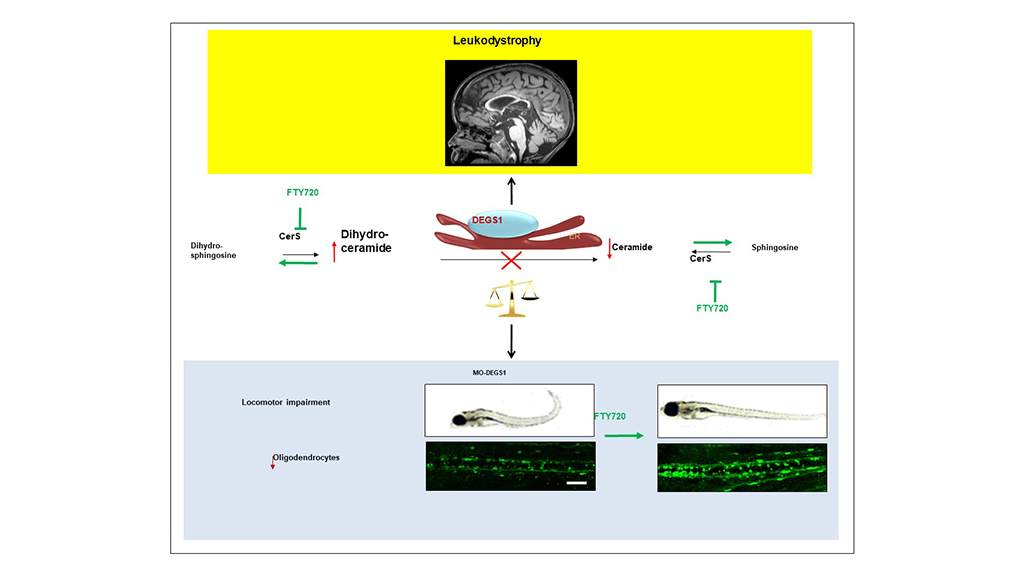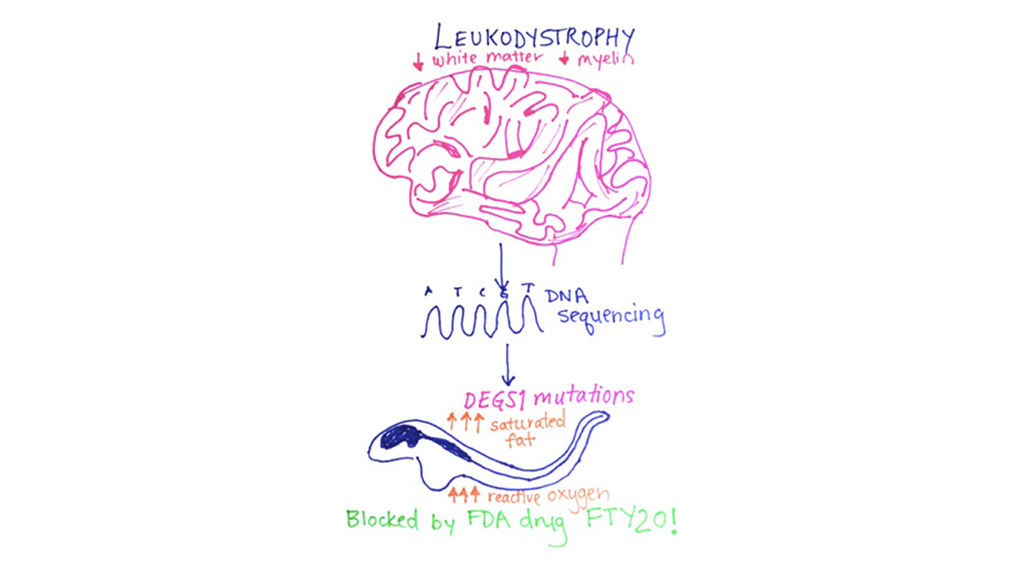Genomic Medicine approach identifies a novel brain disease and its potential treatment. Leukodystrophies are rare inherited disorders that affect the white matter of the brain, the myelin sheath, resulting in a range of severe and often lethal neurological presentations. Several leukodystrophy-associated genes have been identified; however, the etiology of many cases remains unsolved. The use of whole exome sequencing and novel platforms for international data exchange (GeneMatcher) led to the identification of mutations in the endoplasmic reticulum lipid desaturase DEGS1 as the underlying cause of a new ultrarare disease in 19 patients from 13 unrelated families, spread over four continents. The novel disease is called Hypomyelinating Leukodystrophy 18 (HLD18 OMIM: # 618404).
Mutations in DEGS1 caused imbalance of the DEGS1 substrate dihydroceramides, and its product, the ceramides. In a DEGS1 knockdown zebrafish model, treatment with a drug in use for multiple sclerosis, fingolimod, reduced the imbalance between dihydroceramides and ceramides, restored locomotor deficits, and increased the numbers of oligodendrocytes, the cells producing myelin, suggesting this strategy be explored for DEGS1 patients. An international pilot clinical trial for DEGS1 patients is in progress.
The work has been prized as Best Late-Breaking Talk at the International Society for Inherited Errors of Metabolism congress, SSIEM, Amsterdam, September 5th 2019.
Reference

